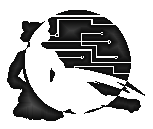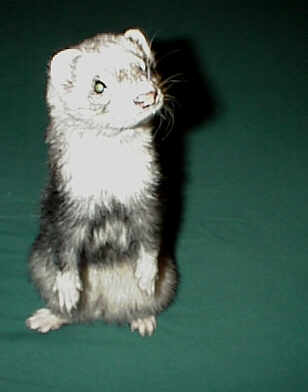Offerings
| About Me | |
| Crafts | |
| Services | |
| ftp files | |
| Help Files | |
| What's New? | |
| Home Page | |
| Other Links | |
|
Anatomy & Physiology |
|
| Arthropods | |
| Biology | |
| Computers | |
| Ferrets | |
| Fun Links | |
| Internet | |
| Linux | |
| S.C.A. | |
| Win 95/NT | |
|
|
Images are a key part
of web pages, though
they can be overused. Too many large graphic files will make your viewer
get bored, frustrated or annoyed and they'll go somewhere else. So
remember to keep your graphics small, one of the links below and most web
publishing books give you details on how to speed up graphics loading.
Image Maps are where you have "mapped out" the coordinates of different areas of a graphic image, and then use those numbers to make different regions go to different pages, sounds etc when clicked on by the user. Note, the example below is for Client Side Image Maps, which are easier to set up, but some older browsers don't work with them. After you get the coordinates, using some form of mapping program (see below for links), you then set up things in your web page like so:
<MAP NAME="pickaname">
Finally, you place
the image someplace in the same page with the following options: Just note, "pickaname" can be anything, but you have to use the same name in both locations. Try it out, it can be fun. A simple trick to map an imageThe following image was set up with this bit of code:<a href="imagemap.html"> <img src="../pictures/raya03.jpg" ISMAP></A>
which allows you to get the X,Y coordinates in the grey status bar at the bottom of
the Netscape browser. The href can point to anything. You don't actually need the
link to work, you just need it to be a link. This makes your browser think it's a
server side image map.
Image Map Sites
|



